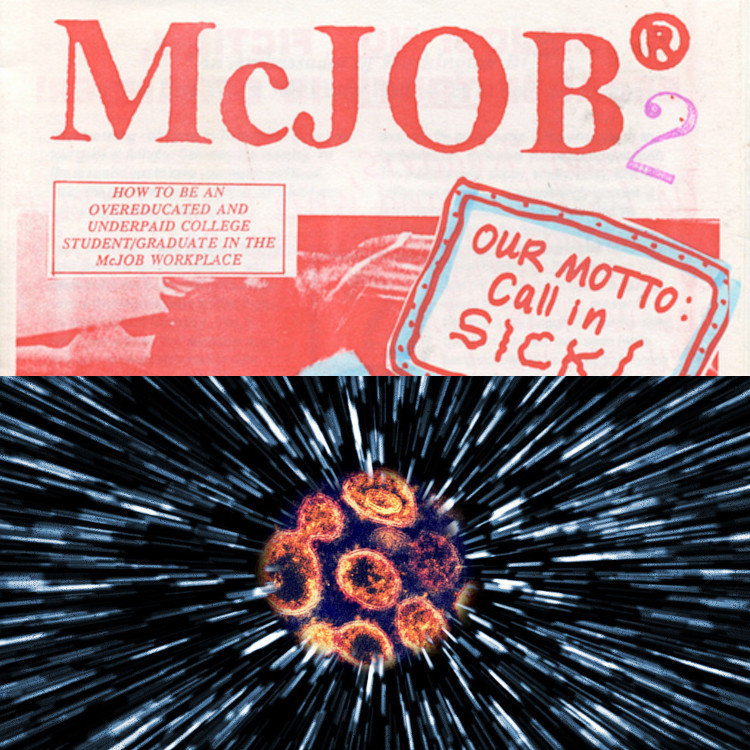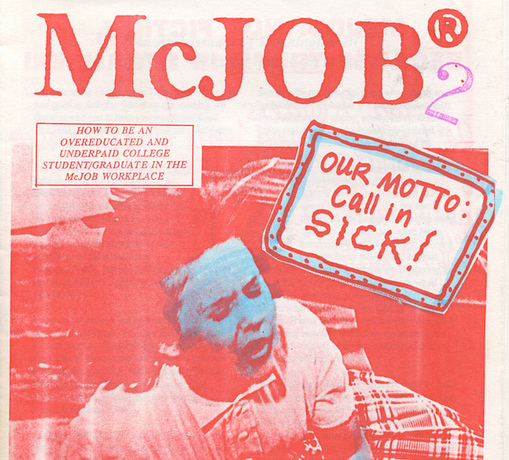
My latest @locusmag column is "Qualia," and it argues that every attempt to make an empirical, quantitative cost-benefit analysis involves making subjective qualitative judgments about what to do with all the nonquantifiable elements of the problem.
locusmag.com/2021/05/cory-d…
1/
locusmag.com/2021/05/cory-d…
1/

Think of contact tracing. When an epidemiologist does contact tracing, they establish personal trust with infected people and use that relationship to unpick the web of social and microbial ties that bind them to their community.
2/
2/
But we don't know how to automate that person-to-person process, so we do what quants have done since time immemorial: we decide that the qualitative elements of the exercise can be safely incinerated, so we can do math on the quantitative residue that's left behind.
3/
3/
So instead of doing contact tracing, we made exposure notification apps. These apps used the fact that your Bluetooth device was close to another Bluetooth device as a proxy for whether you had an epidemiologically significant event.
4/
4/
We can automate measurements of signal strength and contact duration. We can do math on those measurements.
What we CAN'T do is tell whether you had "contact" with someone in the next sealed automobile in slow traffic - or whether you were breathing into each others' faces.
5/
What we CAN'T do is tell whether you had "contact" with someone in the next sealed automobile in slow traffic - or whether you were breathing into each others' faces.
5/
The decision to discard the subjective IS subjective.
When the University of Illinois hired physicists to design its re-opening model, they promised no more than 100 cases in the semester and made unkind remarks about how easy epidemiology was compared to physics.
6/
When the University of Illinois hired physicists to design its re-opening model, they promised no more than 100 cases in the semester and made unkind remarks about how easy epidemiology was compared to physics.
6/
Within weeks, the campus shut down amid a 780-person outbreak. The physicists' subjective judgment that their model didn't need to factor in student eyeball-licking parties meant that the model could not predict the reality.
7/
7/
The problems in quants' claims of empiricism aren't just that they get it wrong - it's that they get it wrong, and then claim that it's impossible for anyone to do better.
8/
8/
This is - in @vm_wylbur's term - "empirical facewash." Predictive policing apps don't predict where crime will be, but they DO predict where police will look for criminals.
Subjectively discarding the distinction between "arrests" and "crime" makes bias seem objective.
9/
Subjectively discarding the distinction between "arrests" and "crime" makes bias seem objective.
9/
40 years ago, the University of Chicago's Economics Department incubated a radical experiment in false empiricism: the "Law and Economics" movement, which has ruled out legal and political sphere since Reagan.
10/
10/
Law and Econ's premise was that "equality before the law" required that the law be purged of subjective assessments. For example, DoJ review of two similar mergers should result in two similar outcomes - not approval for one and denial for the other.
11/
11/
To this end, they set out to transform the standards for anti-monopoly enforcement from a political judgment ("Will this merger make a company too powerful?") to an economic one ("Will this merger make prices go up?").
12/
12/
It's true that "Is this company too powerful?" is a subjective question - but so is "Will this merger result in higher prices?"
After all, every company that ever raised prices after a merger blamed something else: higher wage- or material-costs, energy prices, etc.
13/
After all, every company that ever raised prices after a merger blamed something else: higher wage- or material-costs, energy prices, etc.
13/
So whenever two companies merge and promise not to raise prices, we have to make a subjective judgment as to whether to trust them. And if they do merge and raise prices, we have to subjectively decide whether they're telling the truth about why the prices went up.
14/
14/
Law and Econ's answer to this lay in its use of incredibly complex mathematical models. Chicago economists were the world's leading experts in these models, the only people who claimed to know how to make and interpret them.
15/
15/
It's quite a coincidence how every time a company hired a Chicago Boy to build a model to predict how a merger would affect consumers, the model predicted it would be great.
A maxim of neoliberal economics is "incentives matter" - and economists have experience to prove it.
16/
A maxim of neoliberal economics is "incentives matter" - and economists have experience to prove it.
16/
The Chicago School became a sorcerous priesthood, its models the sacrificial ox that could be ritually slaughtered so the future could be read in its guts. Their primacy in models meant that they could dismiss anyone who objected as an unqualified dilettante.
17/
17/
And if you had the audacity to insist that the law shouldn't limit itself to these "empirical" questions, they'd say you were "politicizing" the law, demolishing "equality before the law" by making its judgements dependent on subjective evaluations rather than math.
18/
18/
That's how we got into this mess, with two beer companies, two spirits companies, three record companies, five tech companies, one eyeglasses company, one wrestling league, four big accounting firms - they merged and merged, and the models said it would be fine, just fine.
19/
19/
These companies are too powerful. Boeing used its power to eliminate independent oversight of its 737 Max and made flying death-traps, and then got tens of billions in bailouts to keep them flying.
20/
20/
What's more, these companies are raising prices, no matter what the model says. The FTC knows how to clobber two companies that get together to make prices higher, but if those companies merge and the two resulting DIVISIONS do the same thing, they get away with it.
21/
21/
The only "price-fixing" the FTC and DoJ know how to detect and stop is the action of misclassified gig-economy workers (who are allegedly each an independent business) who get together to demand a living wage. In Law-and-Econ terms, that's a cartel engaged in price-fixing.
22/
22/
That means Lyft and Uber can collude to spend $200m to pass California's #Prop22, so they can pretend their employees are contractors and steal their wages and deny them workplace protection - but if the workers go on strike, THEY'RE the monopolists.
23/
23/
In Law-and-Econ land, the way those thousands of precarious, overstretched workers should resist their well-capitalised bosses at Uber and Lyft is to form a trade association, raise $200m of their own, and pass their own ballot initiative.
24/
24/
As I wrote in the column: "Discarding the qualitative is a qualitative act. Not all incinerators are created equal: the way you produce your dubious quantitative residue is a choice, a decision, not an equation."
25/
25/
There is room for empiricism in policy-making, of course. When @ProfDavidNutt was UK Drugs Czar, he had a panel of experts create empirical rankings for how dangerous different drugs were to their users, their families and wider society.
26/
26/
From this, he was able to group drugs into "drugs whose regulation would change a lot based on how you prioritized these harms" and "drugs whose ranking remains stable, no matter what your priorities."
27/
27/
Nutt was then able to go to Parliament and say, "OK, the choice about who we protect is a political, subjective one, not an empirical one. But once you tell me what your subjective choice is, I can empirically tell you how to regulate different drugs."
28/
28/
Nutt isn't UK Drugs Czar anymore. He was fired after he refused to recant remarks that alcohol and tobacco were more dangerous than many banned substances. He was fired by a government that sat back and watched as the booze industry concentrated into four companies.
29/
29/
These companies' profits are wholly dependent on dangerous binge drinking; they admit that if Britons were to stop binge drinking, they'd face steep declines in profitability.
These companies insist they can prevent binge drinking, through "enjoy responsibly" programs.
30/
These companies insist they can prevent binge drinking, through "enjoy responsibly" programs.
30/
These programs are empirical failures. The companies insist that this is because it's impossible to prevent binge drinking.
So Nutt made his own program, and performed randomized trials to see how it stacked up against the booze pushers' version.
31/
So Nutt made his own program, and performed randomized trials to see how it stacked up against the booze pushers' version.
31/
Nutt's program worked.
It was never implemented.
Instead, he got fired, for saying - truthfully - that alcohol is an incredibly dangerous drug.
The four companies that control the world's booze industry have enormous political power.
32/
It was never implemented.
Instead, he got fired, for saying - truthfully - that alcohol is an incredibly dangerous drug.
The four companies that control the world's booze industry have enormous political power.
32/
So here we have the failure of Law-and-Econ, even on its own terms. Instead of creating an empirical basis for policy, the Law-and-Econ framework has created global monopolies that capture their regulators and kill with impunity.
33/
33/
That's why it's so significant that @amyklobuchar's antitrust proposals start by getting rid of the "consumer welfare" standard and replacing it with a broader standard: "Is this company too powerful?"
pluralistic.net/2021/02/06/cal…
34/
pluralistic.net/2021/02/06/cal…
34/
Image:
OpenStax Chemistry
commons.wikimedia.org/wiki/File:Figu…
CC BY
creativecommons.org/licenses/by/4.…
eof/
OpenStax Chemistry
commons.wikimedia.org/wiki/File:Figu…
CC BY
creativecommons.org/licenses/by/4.…
eof/
ETA - If you'd like an unrolled version of this thread to read or share, here's a link to it on pluralistic.net, my surveillance-free, ad-free, tracker-free blog:
pluralistic.net/2021/05/04/law…
pluralistic.net/2021/05/04/law…
• • •
Missing some Tweet in this thread? You can try to
force a refresh









